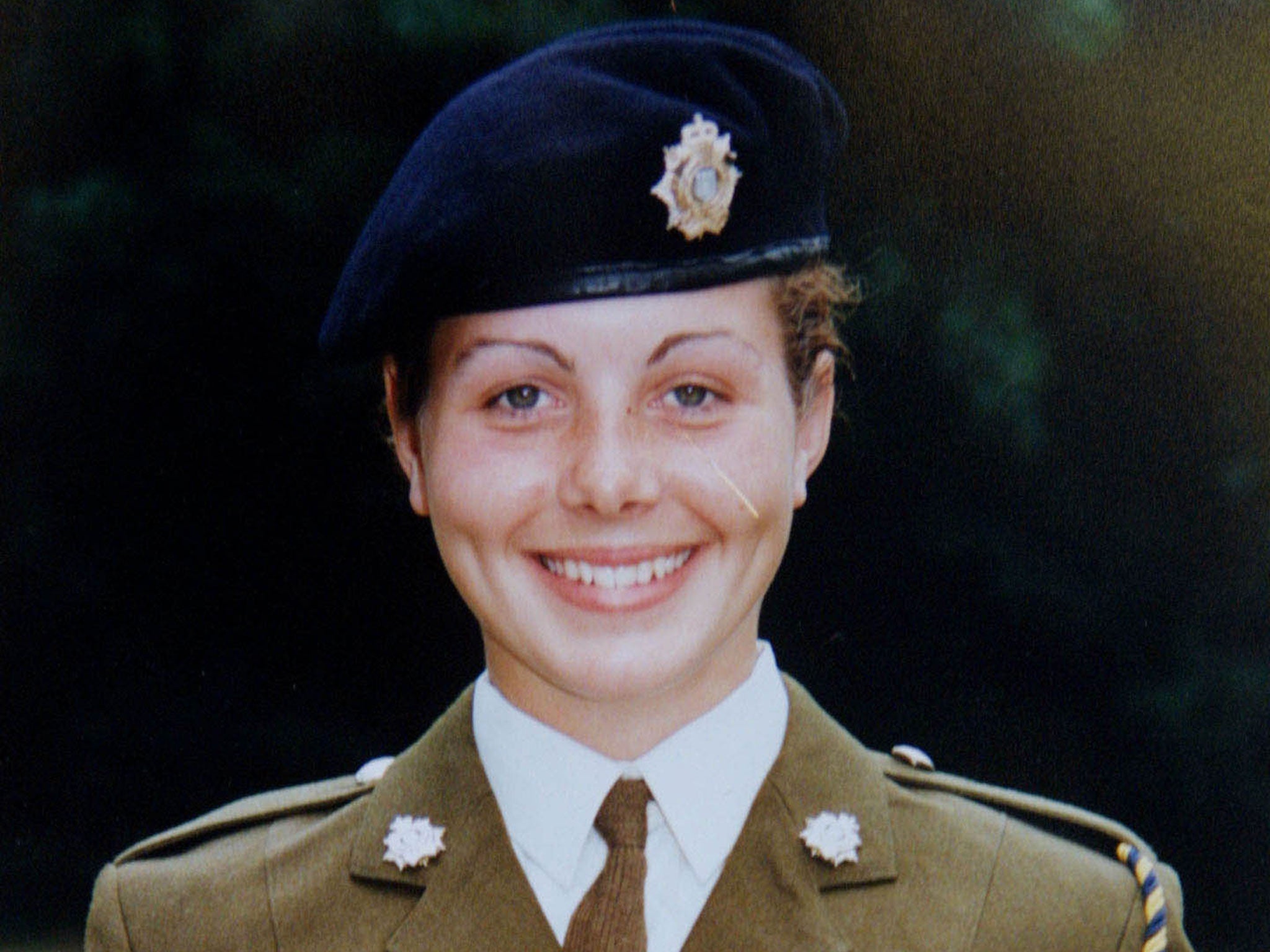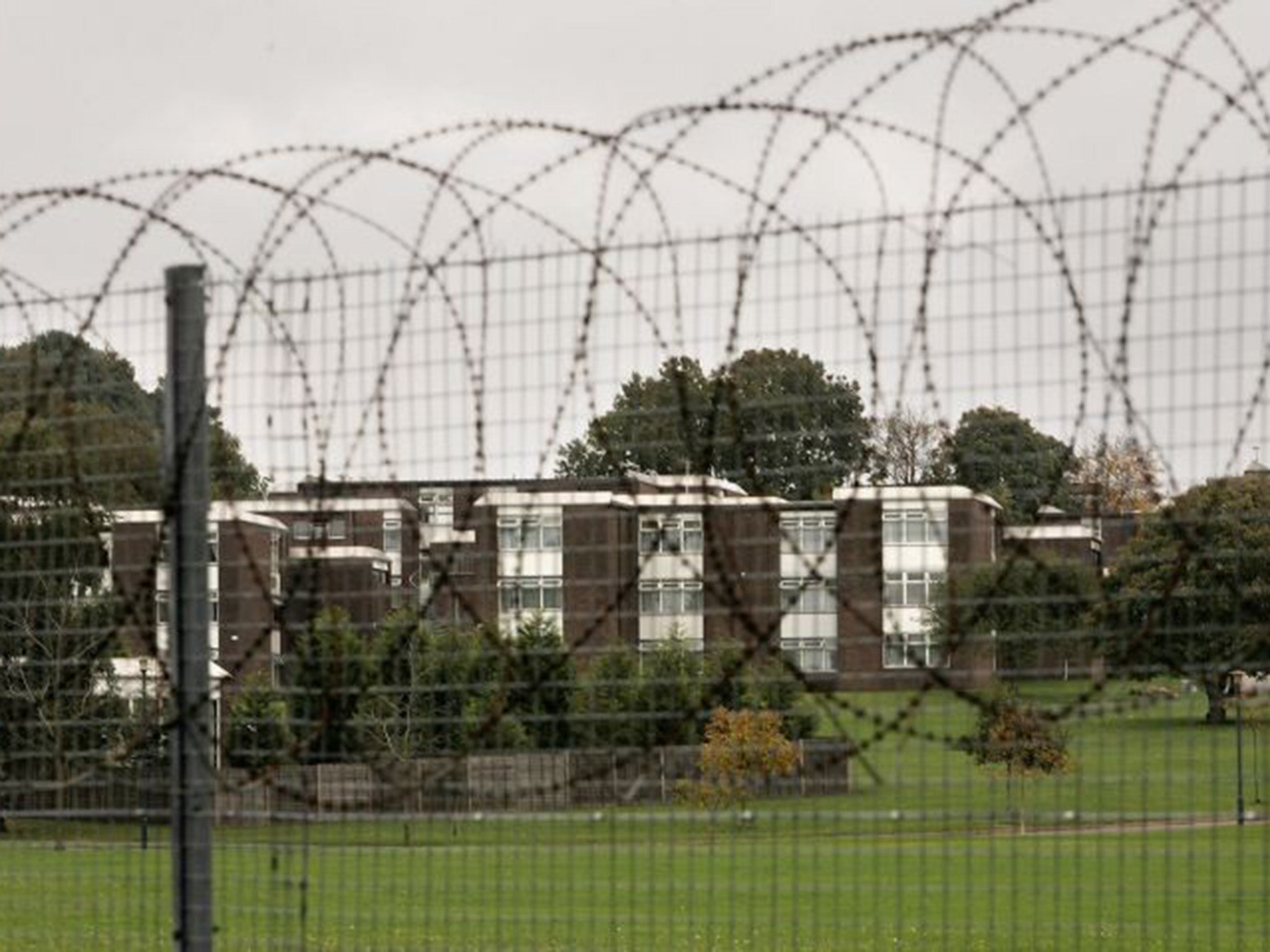Cheryl James inquest 'will not investigate claim of sexual abuse culture at Deepcut Barracks'
Cheryl James was discovered with a fatal gunshot wound at the barracks in 1995

A fresh inquest into the death of a teenage female soldier at the notorious Deepcut barracks 20 years ago will hear evidence that she may have been sexually assaulted before she died but will not take into account wider claims of a culture of sexual exploitation at the Army training facility, a coroner has ruled.
Cheryl James was discovered with a fatal gunshot wound at the barracks in 1995, sparking a two-decade search for the truth for her family which led to the High Court ordering a second inquest following the disclosure of evidence highlighting flaws in investigations by military and civilian police.
The 18-year-old was one of four recruits to die at the Royal Logistic Corps barracks in Camberley over a seven-year period between 1995 and 2002 amid claims of a culture of intimidation, bullying and sexual abuse.
New evidence emerged last month which suggested Pte James, from Llangollen, north Wales, may have been sexually assaulted or raped shortly before her death. There are also claims that she was ordered by a superior officer to sleep with another soldier prior to her being found in the grounds of Deepcut after a night on sentry duty.
At least ten witnesses have also come forward with additional allegations of a culture of sexual exploitation at the training camp, according to human rights organisation Liberty, which is representing the family. Earlier this month, lawyers for the family asked for this evidence to be heard by the new inquest.
But coroner Brian Barker QC, sitting at Surrey Coroners Court in Woking, told the opening day of the inquest that while he would hear evidence concerning the alleged sexual assault on Ms James, the allegations of a wider problem with recruits being coerced into sex by superior officers fell outside the scope of his inquiry.
Mr Barker said he was not conducting a public inquiry and therefore had to restrict his investigation only to events that could have directly impacted on Ms James' death. He said: "This is not a public inquiry into the culture at Deepcut in mid-1990s. This inquest should be a full, frank and fearless investigation into Cheryl's death.
"But that does not mean the scope is unlimited. Any allegation of previous sexual harassment or abuse will fall out of scope of the inquest and cannot be pursued by questioning."
The coroner, who has pledged an "effective and thorough" reinvestigation of the death after the original inquest failed to call key witnesses and took barely an hour to reach an open verdict, said he would revisit his ruling if subsequent evidence touching upon the culture at the barracks could be shown to have had a direct influence on the events surrounding Ms James' death.

Mr Barker has said a key aim of the proceedings will be establish whether a third party was involved in the Pte James' death and what happened on the evening before her death on 27 November 1995.
Speaking before the hearing, Des James, Ms James' father, said: "We know the culture at the camp was out of control. There was a drug and alcohol culture. The bottom line is a culture was created at the camp which contributed to the death of four people."
The young soldier was undergoing the second part of her initial training when she was found dead with a bullet wound between her right eye and the bridge of her nose. She had been on sentry duty on the night of her death and her SA-80 assault rifle was found by her side.
The families of the four recruits have fought for years to secure fresh hearings to establish what happened at Deepcut, the main training centre for the Royal Logistic Corps.
Previous investigations by the Royal Military Police (RMP)) and Surrey Police were strongly criticised for failures to collect key evidence and follow up leads. The RMP did no forensic tests on Pte James' clothing, her rifle or the bullet that killed in its initial investigation.
Six months before her death, Pte Sean Benton, 20, from Hastings, East Sussex, was discovered dead with five bullet wounds to his chest. Another young recruit, Pte Geoff Gray, 17, from Hackney, east London, was found with two gunshots wounds to his head in September 2001. Pte James Collinson, 17, from Perth, was discovered with a bullet wound to the head in March 2002.
In 2014, High Court judges ordered a fresh inquest into Pte James's death after they quashed an open verdict recorded in December 1995. Her body was exhumed in August and a post-mortem examination was carried out by two experts.
Lawyers for the James' family argued that an examination of evidence from the original Surrey and RMP investigations, which was obtained after a ruling under the Human Rights Act, showed the inquiries had been inadequate and a fresh hearing was required.
The hearing was later adjourned after it was revealed that new forensic and scientific evidence had been presented to the inquiry which needed to be considered by all parties.
In total, more than 100 witnesses are expected to give evidence during the new inquests, which is expected to last seven weeks.
